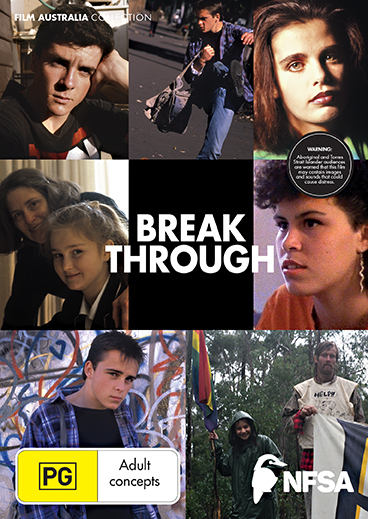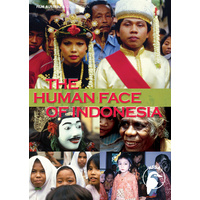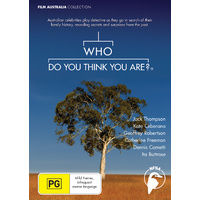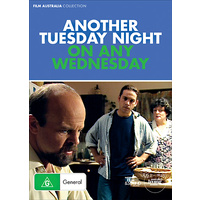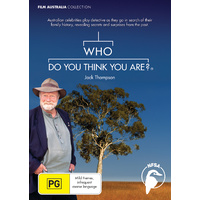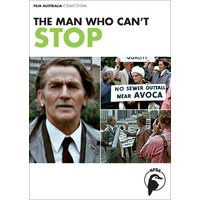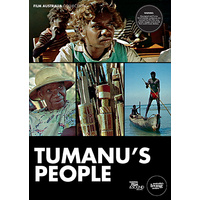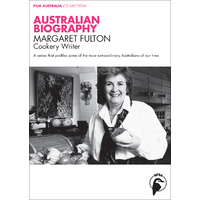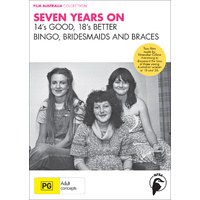1988, Total Running Time 120 Minutes (8 x 15 Minutes)
Breakthrough is a collection of eight programs dealing with violence, stress, divorce, step-parents, death, racism, conflict and political action.
Made for adolescents, it presents these confusing and confronting issues in an entertaining and direct manner. It is aimed at developing the skills necessary for life - evaluating an issue, reasoning, decision-making and the ability to exert control over the situation leading to empowerment, rather than a feeling of hopelessness.
EPISODES
Hit and Miss Adam is failing maths and thinks his teacher is picking on him. Feeling angry and humiliated he walks out on the class, but after thinking it through, he works out a way to resolve his conflict with her.
After losing his cool, he walks out on the class and vents his anger on a full garbage bin. In Adam's wild imaginings, his father despises him and his teacher calls him a loser. This program has been produced to stimulate student thought, discussion and analysis of the issues surrounding conflict resolution. Conflict in its myriad forms has always been part of human society and, no matter how slight, is something we all have to deal with on a day-to-day basis. Knowing how to resolve, or at least reduce conflict situations effectively so that everyone can win, is a skill that will enrich everyone’s lives.
Stress Factor, The A group of high school students with personal experience of stress and its effects discuss the sources of stress in modern life and the possible strategies for coping with it.
Can mad scientist Andrew Denton and his team of trusty laboratory technicians identify and analyse this virulent new disorder that seems to be pervading our society? By examining its causes and effects, can they discover a cure for this insidious “disease” which has such a debilitating effect on us all? Will the guinea pig survive? A group of high school students with personal experience of stress join a panel discussion with Denton to speculate on the sources of stress in modern life and possible strategies for coping. The sensitive subjects of suicide and mental health are discussed, along with more commonplace daily stresses brought on by family life and exams.
One Voice The story of 13 year old Amber who works voluntarily for conservation and is involved in taking action on environmental issues, despite being ostracised by her peers.
Amber is a 13-year-old student who decides to take a stand to conserve our natural environment. This film explores the reasons for Amber’s decision and the implications of making such a decision. Her parents fully support her commitment and explain why they allow Amber much more freedom than other children her age. Amber attends an anti-logging protest on the NSW south coast where she takes the opportunity to make a public statement in support of her principles. At school, Amber is ostracised by her peers who misunderstand and resent her impassioned support for environmental issues. However, Amber unlike most children her age, is undeterred by this and seeks friendship with other members of the movement. It becomes clear through the film that Amber’s confidence and high self-esteem come from her decision to take control over a situation that concerns her. This process of empowerment is a valuable lesson for all adolescents who often look to their future with pessimism in a world of conflicting values and beliefs.
Dad’s Girl Looks at the problem of an adolescent coming to grips with the divorce of her parents.
Janea, like many adolescents today, lives with a divorced parent. Although her parents have lived apart for many years, she still misses her father very much. In fact, she regards herself as more Dad’s girl than Mum’s girl. Janea’s younger sister, who spent less time with her father, agrees.
Janea’s mother expresses the bitterness sometimes experienced by divorced partners when she admits to trying to turn her daughter against her father. Despite this earlier ill-feeling, Janea’s mother now supports Janea’s links with her father and his Maori heritage. Janea, in common with many children of separated or divorced parents, talks of the detrimental effects of her insecurity on her schoolwork and behaviour. She also explains the need for and appreciation of support outside her immediate family. Today, a more settled Janea talks of her more positive approach to her schoolwork as a springboard to her future. She also expresses a new balance in her life as she talks of her love for and loyalty to both parents.
In Loving Memory Follows the life of a thoughtful teenager who has battled with cancer and faced the prospect of dying. It deals with death in a way that adolescents can relate to and aims to lift the lid off this taboo subject in a sensitive way.
Mary developed cancer while still in primary school. She is now 14 and in her fifth year of remission. After her operation she underwent intensive chemotherapy, which caused her hair to fall out and a massive loss in weight. In the film, Mary recalls her fears when confronting death. She explains the effects of her illness on her family and the gratitude she feels that her mother was always there for her. She discusses frankly the loss of friendships due to her peers’ ignorance and fears. Friendship is now very important to her, and after her best friend Anne died of cancer Mary decided to establish ‘Sunbeam’ a newsletter that aims to combat the fear and isolation that children feel when undergoing treatment for cancer. Mary is due for her annual medical check-up. She and her mother are nervous because there is a chance that the cancer may show up again on the X-Rays.
Common Ground Sean was devastated by the divorce of his parents and his mother’s subsequent relationship with another man. Now he is coming to terms with having a step-parent.
The situation Sean found himself in five years ago is becoming increasingly common in Australian society. His mother divorced, then remarried and Sean was forced to make many important and agonising readjustments to become part of a newly blended family. The film begins with Sean on his bicycle outside the old family home, reminiscing about the happy times with his sisters before his parents split up. It was three years ago that his mother Sue broke the news that she was going out with Paul, who was soon to become Sean’s stepfather. Sean was devastated and remembers how he felt: ‘…In my mind, he was something like a monster because he wasn’t my dad.’ The process of readjustment for all the families involved had begun. In this case, it was a matter of finding common ground.
Crime Called Violence, A In an informal teenage forum about the social causes of violence, teachers and students talk candidly about such issues as corporal punishment, bullying in schools and drug-induced violence.
Super sleuth Andrew Denton is attempting to solve the mystery of this crime called violence. On a dark and stormy night, he has assembled his suspects. Who are the perpetrators and who are the victims of this crime? Is this crime on the increase? How many of us are involved, even as onlookers? Can we discover ways of reducing violence in our society? Andrew hosts a discussion about what makes people violent. Teachers and students talk candidly about such issues as corporal punishment and bullying in schools, whether boys are more violent than girls, drug-induced violence and how much they think violence on TV affects their own behaviour.
Alice An intimate portrayal of Alice, a young aboriginal model, singer, dancer and actress, who has since childhood struggled against the ugliness of racism to succeed in her chosen profession as a performer.
Racism, one of the most demeaning and destructive of human passions, has dogged Alice through childhood into maturity. Her dreams of success in dance and music are being fulfilled, but painful memories of racial slights linger on and recurring jibes of intolerance against her race are an ever-present threat to her self-confidence. However, Alice continues to strengthen and apply her talents in order to ‘…educate the rest of the world, Australia especially, about our people.’ Racial prejudice is a factor in every human society, usually aimed at minority groups by a dominant majority. This film takes the viewer into Alice’s mind, eavesdropping on her innermost thoughts. It’s an intimate portrayal in which we gain some insights into the effects of prejudice against Aboriginal people.
A Film Australia National Interest Program. © 2011 National Film and Sound Archive of Australia.
(198804300)
Directors: Pip Karmel, Ian Host (x 2), Stephen Ramsey, Judy Menczel, Pamela Williams, Martin Daley, Michael Riley.
Presenter: Andrew Denton (Stress Factor, The; Crime Called Violence, A)
Principal Cast: Les Hill (Adam), Peter Browne (Dad), Elizabeth Maywald (Teacher), Olga Dickie (Mildred) (Hit and Miss); Alice Haines (Alice).
Year: 1988
Total Running Time: 120 Minutes
Classification: PG. Consumer Advice: Adult Concepts.
Curriculum Links: English K-10 Stage 5 - Insights into Aboriginal experiences in Australia; Indigenous Studies - Culture and Identity; Criminology; Legal Studies; Psychology; HSIE/SOSE; PDHPE; Performing Arts; Media Studies; Politics of Activism; Conflict Resolution; Loss and Grief Studies.
SEE ALSO
| SKU | 198804300 |
| Brand | Film Australia |

